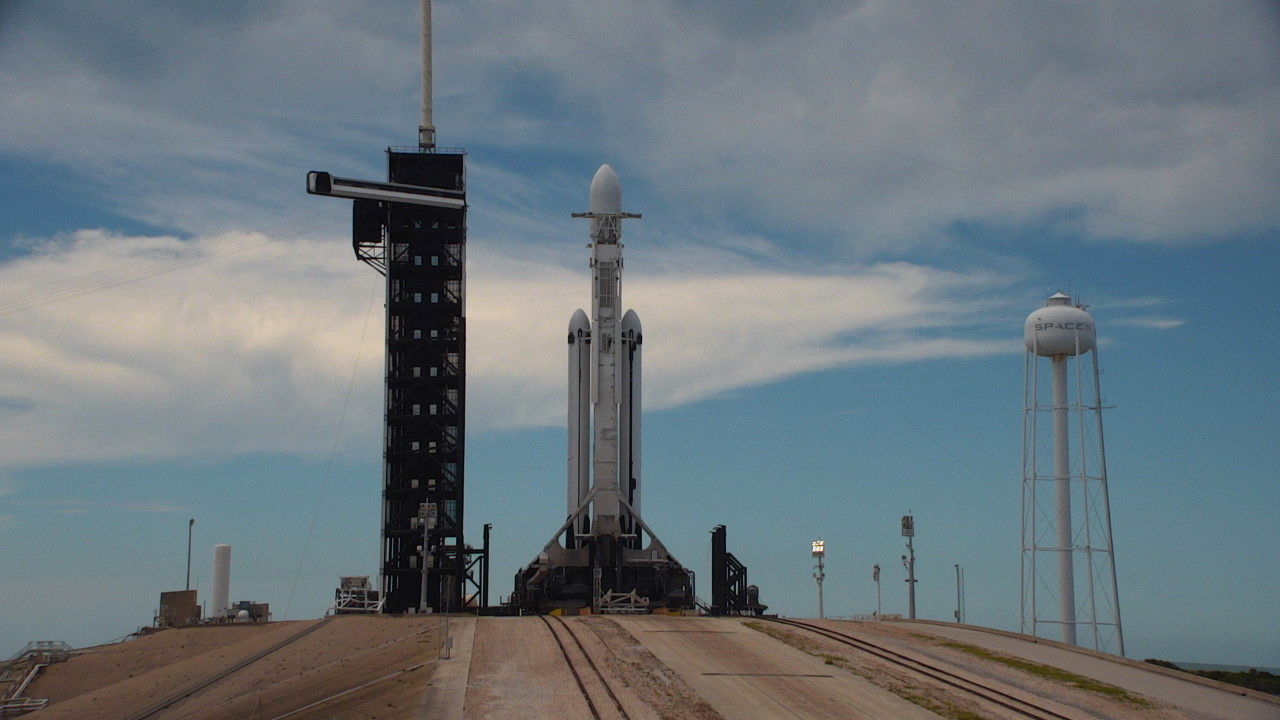
The schedule for today’s launch of NOAA’s (National Oceanic and Atmospheric Administration) GOES-U (Geostationary Operational Environmental Satellite U), the fourth and final weather-observing and environmental monitoring satellite in NOAA’s GOES-R Series, is now set.
NASA and SpaceX are targeting a two-hour launch window opening at 5:16 p.m. EDT. The satellite will launch on a SpaceX Falcon Heavy rocket from Launch Complex 39A at NASA’s Kennedy Space Center in Florida.
Read through milestones for today’s countdown, liftoff, ascent, and booster landing (all times are approximate and subject to change based on mission operations):
HR/MIN/SEC EVENT
– 00:53:00 SpaceX Launch Director verifies go for propellant load
– 00:50:00 1st stage RP-1 (rocket grade kerosene) loading begins
– 00:45:00 1st stage LOX (liquid oxygen) loading begins
– 00:35:00 2nd stage RP-1 (rocket grade kerosene) loading begins
– 00:18:30 2nd stage LOX loading begins
– 00:07:00 Falcon Heavy begins engine chill
– 00:00:59 Flight computer commanded to begin final pre-launch checks
– 00:00:45 SpaceX Launch Director verifies go for launch
– 00:00:20 Propellant tanks pressurize for flight
– 00:00:06 Engine controller commands engine ignition sequence to start
00:00:00 Falcon Heavy liftoff
00:01:11 Max Q (moment of peak mechanical stress on the rocket)
00:02:25 Side boosters engine cutoff (BECO)
00:02:28 Side boosters separate
00:02:44 Side boosters boostback burns begin
00:03:53 Side boosters boostback burns end
00:03:56 1st stage main engine cutoff (MECO)
00:03:59 1st and 2nd stages separate
00:04:06 2nd stage engine starts (SES-1)
00:04:24 Fairing separation
00:06:36 Side boosters entry burns start
00:06:51 Side boosters entry burns end
00:07:53 Side boosters landing burns start
00:08:11 Side boosters landing
00:08:23 2nd stage engine cutoff (SECO-1)
00:26:19 2nd stage engine starts (SES-2)
00:27:46 2nd stage engine cutoff (SECO-2)
04:21:18 2nd stage engine starts (SES-3)
04:21:51 2nd stage engine cutoff (SECO-3)
04:30:02 GOES-U deploys
NASA will provide live launch coverage beginning at 4:15 p.m. EDT on NASA+, NASA Television, the NASA app, YouTube, and the agency’s website. Learn how to stream NASA TV through a variety of platforms including social media.
Continue checking NASA’s GOES blog for additional mission milestones, or join the conversation and get updates on social media by following these accounts:
X: @NASA, @NASA_LSP, @NASAKennedy, @NOAASatellites, @NASAGoddard
Facebook: NASA, NASA LSP, NASA Kennedy, NOAA Satellites, NASA Goddard
Instagram: NASA, NASA Kennedy, NOAA Satellites
